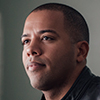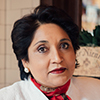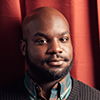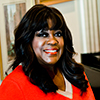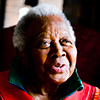



Durkin, 68, is a criminal defense attorney who specializes in civil rights and—especially since 9/11—domestic terrorism. His clients have included Matthew Hale, a white supremacist convicted of plotting to murder a judge; the so-called NATO Three, who were convicted of mob action but acquitted of terrorism charges; Adel Daoud, charged with conspiring to blow up a downtown bar; and Mohammed Hamzah Khan, charged this summer with planning to join the Islamic State in Syria.
Interview by Mick Dumke
Photos by Jeffrey Marini

One of the first questions I’m always asked is, “How did you get into terrorism-related cases?” And I always say, “I answered the phone and I said yes.”
I got a call in December of 2001 from a lawyer in Washington, D.C., who asked me to come into a case with him on behalf of an Islamic charity called the Global Relief Foundation, from [suburban] Bridgeview, whose assets had been seized by the Treasury Department. We challenged the constitutionality of the statute that permitted the seizure, which permitted the introduction of secret evidence. We lost.
A couple years after that we got a call from the Center for Constitutional Rights in New York to represent some Guantanamo detainees in habeas corpus cases, and my wife [and law partner] and I agreed to take one. It was for a detainee from the Sudan. He’s since been returned home.


Then in 2008 I was asked by the American Civil Liberties Union to provide civilian counsel to the military lawyers in the first iteration of the 9/11 cases before the military commissions at Guantanamo Bay. That’s the Khalid Sheikh Mohammed case. We were involved in the case through 2009, when President Obama ordered all the military commission cases to be dismissed. It became a political hot potato, and the Republicans got involved in passing legislation that would not permit trials like that to take place in the U.S. The case is now back in the military commissions.
As a result of all that, I got calls on a lot of what are called domestic terrorism cases. As I frequently joke, in the land of the blind, the one-eyed man is king. Not a lot of people can say they’ve handled one domestic terrorism case, much less several.
I think these are the cases of our day. They point out all the problems that terrorism has spawned, with the reaction on our side, both good and bad. I find them fascinating. There are some days I find it hard to believe that people are paying me to be involved in what I’m involved in. There’s a tremendous amount of history you have to learn, which I enjoy. There’s a lot of theology you have to understand, which I enjoy.

The war on drugs was a disaster for civil liberties in this country, and I think the war on terror has followed that template. War on anything in the criminal justice system is very dangerous, and it sends people into political postures that they shouldn’t otherwise be in. I’ve watched good judges emasculate the Fourth Amendment out of fear of looking soft. There’s virtually nothing left of the Fourth Amendment that I learned in law school.
We’re creating a two-tiered system of justice in the federal court. We have one whole level of jurisprudence for regular cases and a separate level for terrorism cases. The fear I have is that sooner or later everything’s going to become national security. I don’t think it’s a stretch of the imagination for the president someday to issue an executive order saying that the commodities futures market is integral to national security because it goes to the heart of our banking system, and next thing you know a commodities fraud case is going to be a national security case.
It became clear to me that, starting with the Guantanamo military commissions, the prosecutors don’t control the cases anymore. They’re controlled by the intelligence agencies, including the FBI, which has become an intelligence agency. I think it’s very dangerous to start merging intelligence into criminal prosecution.

Guys like [appellate court] Judge [Richard] Posner always talk about balance—that in times of fear and national insecurity it goes one way and at other times it goes back. I have a lot of respect for Judge Posner, but in my experience it only swings in a direction to curtail civil liberties, and it doesn’t swing back.
I predicted that there would be a NATO Three case when I saw the massive amounts of money that we were spending on security for NATO and when I watched the police overreaction to the demonstrations. I said then, “There will be another Chicago Seven case.” I expected it to be federal. But in fairness, the feds would have nothing to do with this ridiculous case that the state’s attorney brought. I thought it was nothing more than raw politics to justify turning the city into a police state for a weekend.
I’ve always believed that you ought to be able to do both sides of a criminal case. I’m as concerned about defense lawyers who say they could never be prosecutors as I am prosecutors who say they could never be defense lawyers. [But] my skills are better equipped to be a defense lawyer. My personality is more flamboyant. I don’t necessarily do well with authority, so I’m probably better off on this side, where I’m challenging the establishment. I’ve come to appreciate how dangerous power is.








